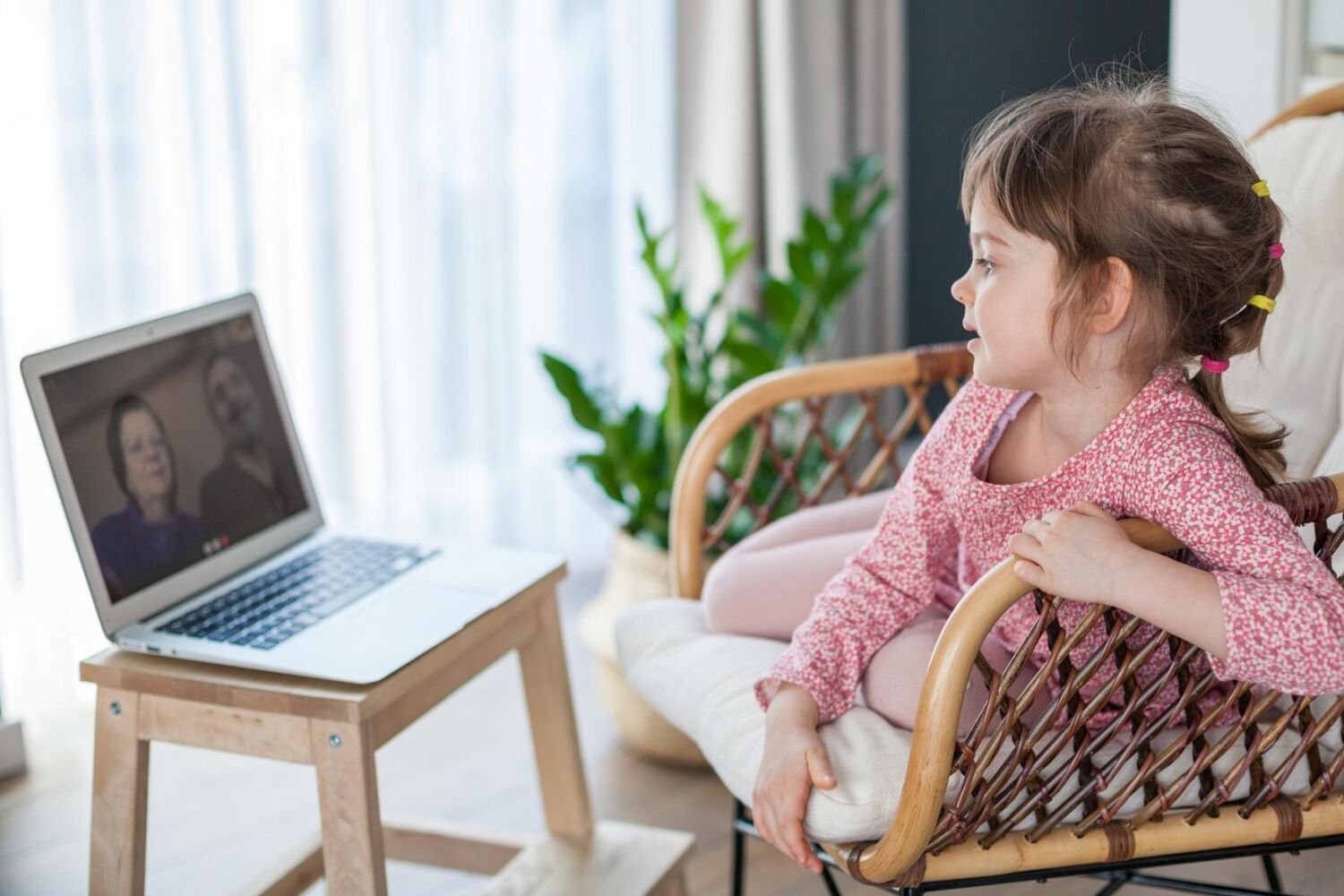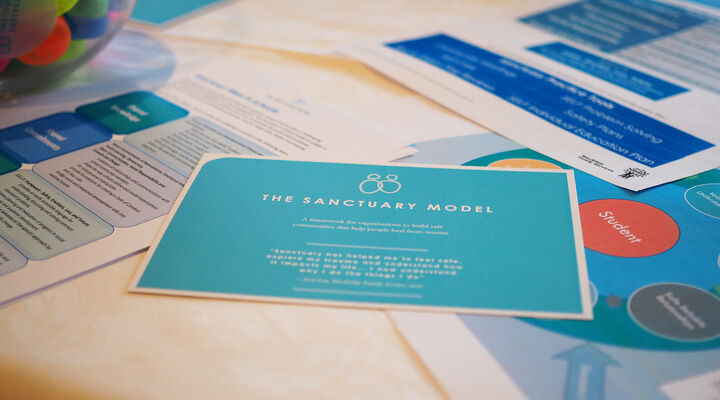“Toddlers don’t do Zoom,” states foster carer Adele Bull looking back at her experience of foster care through almost two years of COVID-19 restrictions in Melbourne’s eastern suburbs.
Adele and her husband Russell, who have been foster carers since 2017, care for five children aged between 18 months and 12 years.
“An important part of my role as a foster carer is supporting children to stay connected with their parents, siblings and grandparents where that is appropriate. When face to face visits were stopped, the older kids had no problem talking to their parents or siblings over zoom or skype calls, but keeping a toddler engaged online for more than five minutes was a real challenge.
“I like to stay in the background so that families and kids can develop their own relationship, but you have to guide very young children to stay involved in the call and I know it was difficult for parents who were trying to make a real connection,” Adele said.
Tania Ferris, Foster Care Recruitment Manager for MacKillop Family Services, is amazed at the resilience and adaptability of foster carers who positively responded to the increased pressures placed on them by the pandemic.
“Our essential workers throughout the pandemic were incredible, and we’re forever grateful to them. Foster Carers were our essential volunteers. Some of our foster carers look after kids who live with complex health issues and they are usually supported with a range of therapeutic services, but during lockdown many of these had to be suspended. It put a lot of pressure on foster care families who had little to no respite time, but they continued to do their best for the children in their care. I am constantly in awe of the dedication and compassion of our foster carers and how they always put the needs of the children first,” said Tania.
When the pandemic struck, foster care agencies swung into action, moving assessments and training online to support carers.
“As the number of children coming into care continues to rise, it’s vital for us to keep a constant flow of new carers coming onboard,” Tania added. “Usually we hold face to face information sessions and go to homes to meet and interview prospective carers. This all had to be moved online as well as our comprehensive training suite which meant that we could continue to accredit new foster carers.”
Geelong based Olivia Mathieson, a 26-year-old single parent to a six-year-old boy, says living through a pandemic inspired her to do something to give back to her community.
“I looked into volunteering opportunities with young people and while researching I came across MacKillop’s foster care website and I thought to myself, I have the right attitude and the right mindset – why not put an application forward?”
Working in the field of supporting young people aged 15 – 24 when they are disengaged with education, Olivia knows there is a critical shortage of safe homes for vulnerable young people.
“My grandparents fostered children when I was growing up and it was common for there to be three or four children staying with them. My family taught me to be inclusive of everyone no matter their background.
“Families come in all shapes and sizes and there are many different types of foster households. My family is very involved with the kids I have staying with me. They absolutely adore the kids and my nieces and nephews come over and play with them.”
Olivia adds that she enjoyed the online training with MacKillop.
“Completing assessment and training online really suited me. As a single parent, it meant I could complete most of it from home and not have to arrange child minders. It was very convenient as I could do the training after work or on weekends. I also enjoyed the online sessions where you could talk to other foster carers, I learnt a lot from their experience.”
While providing foster care through lockdown restrictions is not something anyone wants to return to, the versatility and steadfastness of MacKillop’s foster carers ensured that safe, nurturing care continued for over 900 children.
“Our foster care program has learned a lot over the last 21 months,” added Tania Ferris. “Many of our foster carers tell us they found online training really useful, so going forward, we will use a hybrid of face-to-face meetings and online training and assessment services.
“As with every organisation, the pandemic forced us into new ways of working. It’s great to see that some of these processes have made it more convenient for people to take part in the assessment process or complete the necessary training, as the need for people in the community to open their homes to children is ongoing, and continues to grow,” Tania said.





